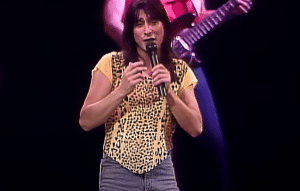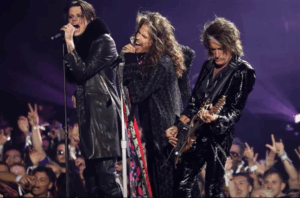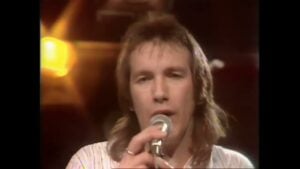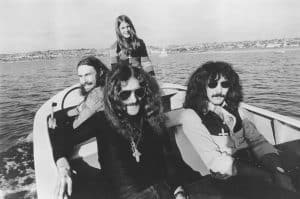10 60s Classic Rock Bands That Never Got the Credit They Deserved

via James Maharaj / YouTube
The 1960s had many well-known rock bands, but not all of them got the credit they deserved. Some groups made strong records and had a loyal fan base, but they didn’t reach the same level of fame as others from the same time. These bands influenced later musicians and helped shape the sound of rock, but their names are often left out of the spotlight.
The Pretty Things
The Pretty Things came out of London in the early 1960s and had a rougher sound than many of their British Invasion peers. Their early songs were loud, blues-based, and often pushed the limits of what was acceptable at the time. They were one of the first bands to mix rhythm and blues with something closer to garage rock.
In 1968, they released “S.F. Sorrow,” which many rock historians now see as one of the first rock concept albums. Even though it came before The Who’s “Tommy,” it didn’t sell well. Despite that, The Pretty Things influenced later acts like David Bowie and helped lay the groundwork for psychedelic and progressive rock.
Love
Love was a band from Los Angeles, active mainly in the mid-to-late 1960s. Led by Arthur Lee, they mixed rock, folk, and psychedelia with a sound that was ahead of its time. Their third album, “Forever Changes,” is often ranked among the best records of the decade.
The band never had a major national hit, which limited their exposure. Internal problems and label issues kept them from reaching a bigger audience. Still, musicians and critics often praise their creativity and bold mix of styles. Lee’s songwriting has influenced artists across many genres since.
The Zombies
The Zombies had a few hit singles, like “She’s Not There” and “Tell Her No,” but they never reached the level of fame other British bands did. Their blend of jazz-influenced chords and smooth harmonies made them different from most of their peers.
Their 1968 album “Odessey and Oracle” didn’t sell well when it first came out. Later, it gained attention and is now seen as one of the best records of the 1960s. The song “Time of the Season” became a late hit, but by then the band had already broken up.
The Electric Prunes
The Electric Prunes came out of California and had a minor hit in 1966 with “I Had Too Much to Dream (Last Night).” They blended garage rock with experimental studio sounds, including early uses of reverb and fuzz effects. Their music was raw and often strange, setting them apart.
They released a few albums, including the ambitious “Mass in F Minor,” which mixed rock with Latin and religious themes. While that album didn’t succeed commercially, it showed they were trying new ideas. The Electric Prunes didn’t last long, but they influenced later psychedelic and garage rock bands.
The Sonics
The Sonics were a garage rock band from Tacoma, Washington. Formed in the early 1960s, they had a raw, aggressive sound that was unusual for the time. Their songs like “Strychnine” and “The Witch” featured loud guitars, pounding drums, and shouted vocals.
They didn’t have much radio play outside their region, but their music later found a wider audience. Many punk and grunge bands in the ’80s and ’90s cited them as an influence. Even though they didn’t sell many records during their time, The Sonics helped shape the sound of underground rock.
The 13th Floor Elevators
This Texas-based group was one of the first to use the term “psychedelic rock” to describe their sound. Their debut album, “The Psychedelic Sounds of the 13th Floor Elevators,” came out in 1966 and featured the hit “You’re Gonna Miss Me.”
The band’s frontman, Roky Erickson, was known for his wild vocal style and troubled life. Legal problems and mental health issues kept the band from reaching a wider audience. Still, they became cult favorites, and their work influenced future psychedelic and garage rock acts.
Moby Grape
Moby Grape formed in San Francisco in the late 1960s and were part of the city’s growing rock scene. They had five members who could all sing, write songs, and play well. Their 1967 debut album included rock, folk, blues, and even country influences.
Despite their talent, problems with management and a rushed release of too many singles at once hurt their success. Critics liked their music, but they never gained wide popularity. Today, their debut is viewed as one of the better albums from the era, but they remain mostly unknown outside music history circles.
The United States of America
This short-lived band formed in 1967 and only released one self-titled album in 1968. They stood out by using electronic instruments like early synthesizers, instead of guitars, in much of their music. The band mixed rock with avant-garde styles, classical influences, and early electronic sounds.
They never broke through to a large audience, partly because their music was too strange for most listeners at the time. But they’ve gained a small cult following over the years. Their influence can be heard in later experimental rock and electronic groups that came decades later.
Them
Them was a Northern Irish band best known for launching the career of Van Morrison. Their biggest hit, “Gloria,” became a garage rock classic and is still widely covered. Morrison’s powerful voice helped the group stand out from other British Invasion acts.
While Van Morrison went on to fame as a solo artist, the band itself is often overlooked. They played tough, blues-based rock that helped shape garage and punk music later on. Though their time was short, Them helped set the stage for more aggressive forms of rock in the years that followed.
The Music Machine
The Music Machine came out of Los Angeles and had a hit in 1966 with “Talk Talk,” a short, fast-paced song that showed early signs of punk. The group wore all black and had a distinct sound that mixed garage rock with fuzzy guitars and dark lyrics.
Their debut album had more strong songs, but they couldn’t keep their lineup together. The band faded quickly, but later musicians have praised their style and approach. “Talk Talk” has been included in many garage rock compilations, and The Music Machine is now seen as an early influence on punk rock.























